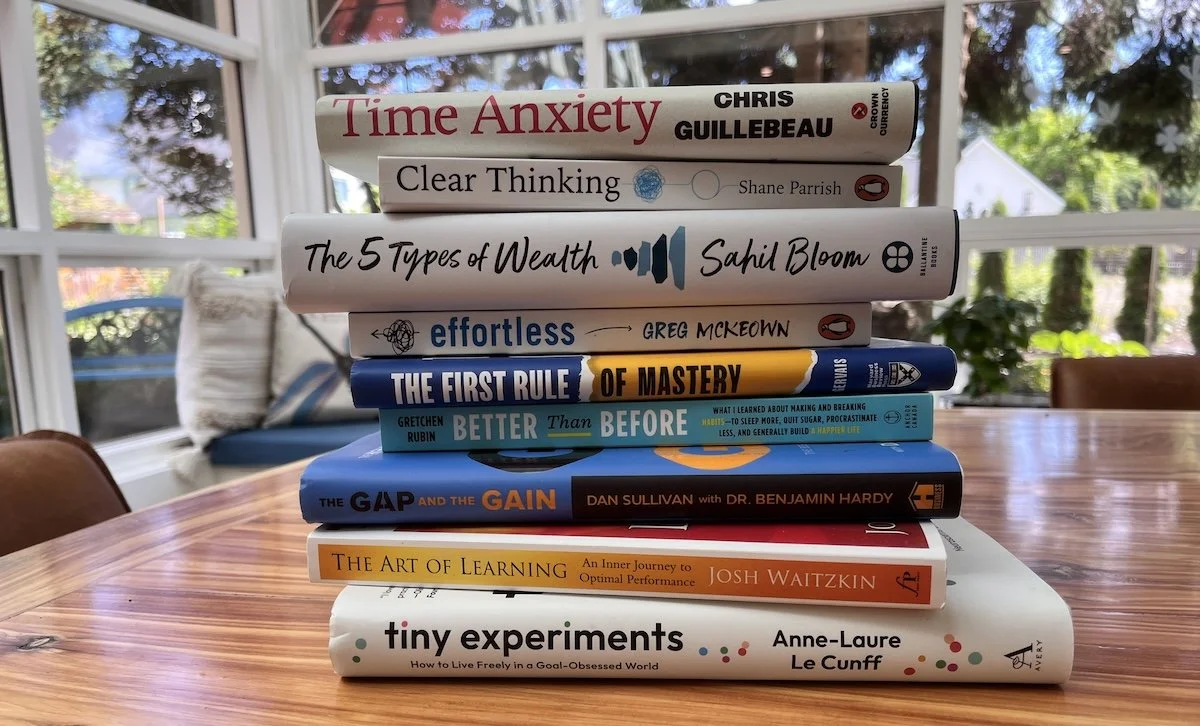Am I Too Old to Learn?
I don’t know if I should feel insulted, angry, amused or just turn another page.
I’m reading a self-help book, it’s a new release (which means hard cover prices), and getting lots of good reviews, so I added it to my morning reading. And it’s good—very good in fact. As usual with non-fiction books, I’m taking lots of notes. But there’s one problem I can’t seem to get by.
It’s written by someone my daughter’s age.
When I entered the world of business - first as an entrepreneur, and then later in graduate school - all my teachers were older than me. My professors were grizzled veterans of business and academia as were the authors whose wisdom we took as gospel.
There is something that feels natural about learning from elders.
In the times of the stoics, wise elders steeped in lessons from their mentors shared wisdom with younger generations. Around the community fire, tribal elders passed down hard-won lessons about hunting, survival and warring tribes. While older, better established artists share their knowledge and insights with young protégés.
It is a formula for knowledge sharing and inspiring others as old as time.
But now it’s thirty-somethings writing about habits and discipline and finance who are publishing best-sellers and amassing huge audiences online. The knowledge-sharing pyramid has been flipped on its head.
And I’m not sure I’m their audience.
Taking notes
I love books and love learning even more. For me, fiction is for fun and falling asleep. Whereas non-fiction is a no-nonsense, sit-up-straight, investment in learning. And if you don’t take notes, you’re just pretending.
In the first six months of this year I have read, or reread, 15 non-fiction books (I would guess that about a third were written by younger authors) and have notes for every one.
The process of reading, discovering an interesting passage or idea, pausing to record notes, and then returning to the text does more than capture an idea. I think about doing what the author is suggesting.
Most often my thought starts with “maybe I should”.
Maybe I should
When I read Clear Thinking by Shane Parrish I thought maybe I should have more mental models to help sort through tough decisions in my life. “Exceptional outcomes,” Parrish preached, “are almost always achieved by people with higher-than-average standards.”
The Art of Learning by Chess protege turned Tai Chi champion, Josh Waitzken had me thinking I should get out of my head and into my body (or at least down to neck-level). It’s not good enough to be proficient, even great at something, the objective is for your craft to be “an expression of our essence.”
As I read Sahil Bloom’s best-seller, The Five Types of Wealth I was thinking life was becoming very complicated and that if I want anything more out of life I needed to get out a ruler and start measuring it.
All of these authors are young, smart, ambitious and their books are solid—if they weren't I would finish them. And there is a theme that winds through the pages of all non-fiction (including my own). If you want something - whether that is to start something, change something or stop doing something - you need to get uncomfortable and do the work.
Nothing new there—we all know that the early bird gets the worm. But now it seems the bird has to also make a habit of being early, track how many worms were yanked out of the grass before noon, and start selling worms at the local bird market. You can’t just do something new, you need to make it life-changing.
Life-changing
I remember when goal setting was the big thing.
Create a vision, formulate a goal and then get to work. Pretty simple formula - even if you stir in BHAG or SMART into the mix - you pick the mountain, pack your bags and start marching to the summit.
At some point we left the single-minded goal-setting approach of Drucker, Covey and Collins and entered a lifestyle approach that celebrated flexibility, experimentation, and work/life balance. With Tim Ferriss, Micheal Gerber and David Allen as our flag-bearers we learned about outsourcing, compressed work-weeks, radical delegation, becoming a digital nomad, online commerce, and using free time for extreme sports.
The goal was to achieve everything you want, anywhere you want, while also becoming a better person.
While you are starting a new business (that, of course you are planning on exiting before you get bored) you should also be working on your exercise habits, mindfulness practice, and time blocking. If you choose employment you have even more time to work on your morning disciplines, vegan diet, daily Duolingo lessons and, of course, a side hustle (which you are planning on exiting before you get bored).
And I love it.
Never too old
I’ve come to realize that my only resistance to lifestyle before business and output over outcomes is that I didn’t adopt it sooner. I’m glad I exited my last business (and I wasn’t even bored yet) when I did. I still have lots of gas in the tank to explore and experiment.
This year I spent two months updating my book, Give Me a Break, so that I could lighten the reins on discipline and formulaic work practices, and shine a light on lifestyle while allowing unwanted and low-value distractions to fall off the to-do list.
I might be older than almost every author whose book I’m learning from. But that’s okay, as long as I’m still learning.
Want more? Here are three short articles all about doing less, but better.
Small Wins - Why Little Steps are the Path to Big Rewards
Keynotes and workshops by Hugh Culver



